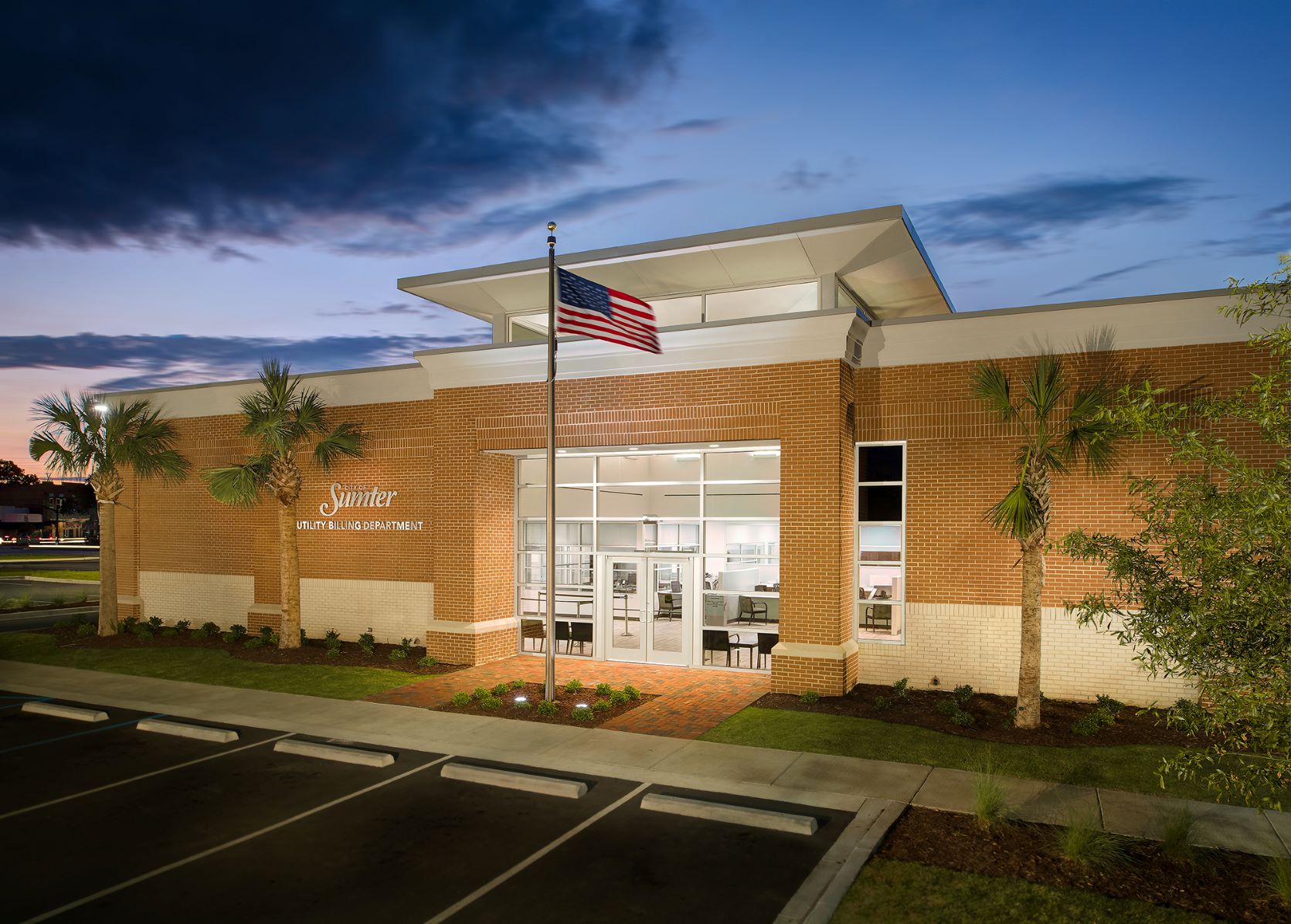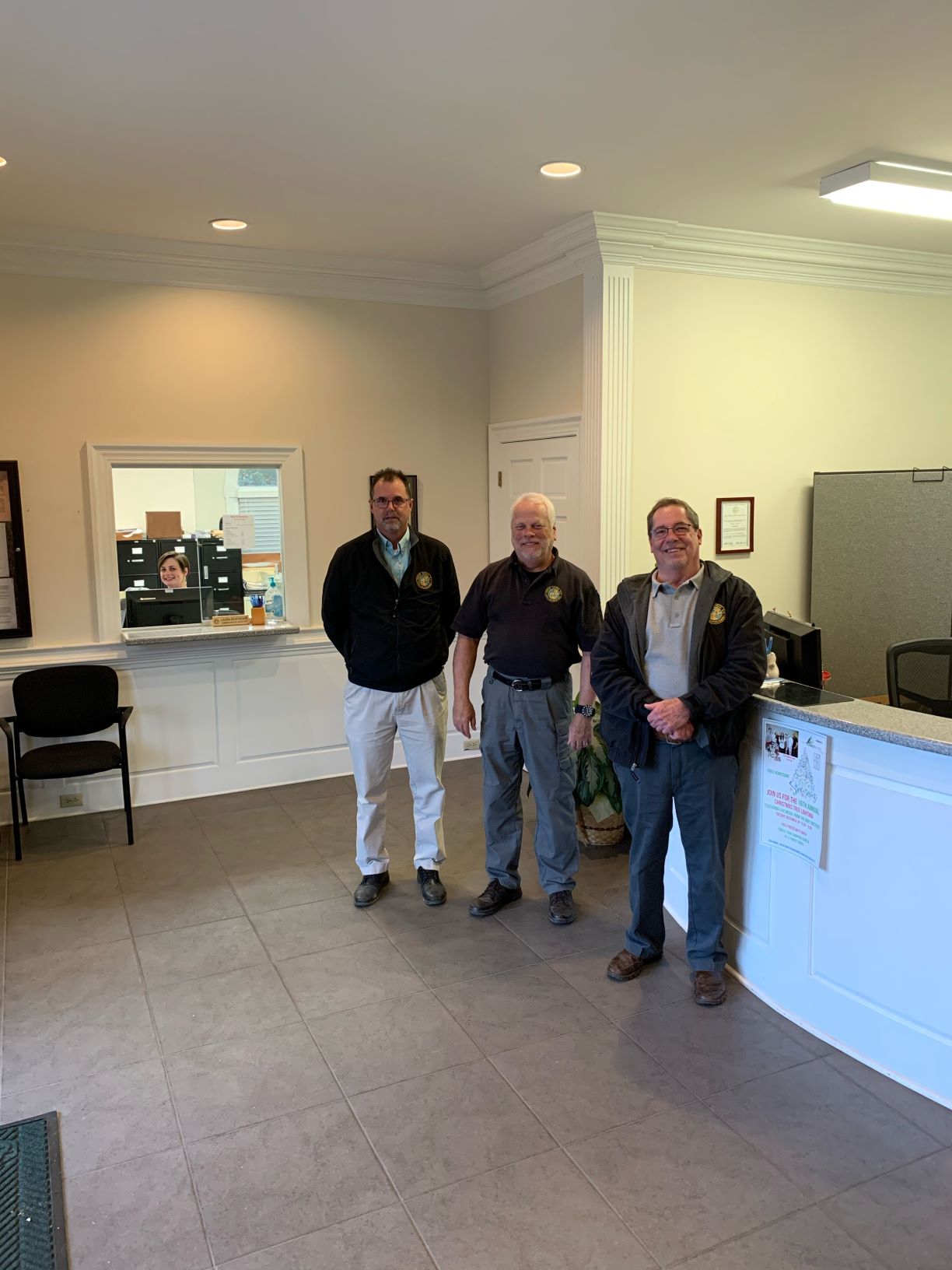Cities Build Better Relationships With Transaction Improvements
Whether it's offering a one-stop shop for business licensing or streamlining billing for utility customers, cities and towns are putting a greater focus on customer service for residents and businesses, particularly in the areas of utility billing and business licensing.

Sumter opened its purpose-built Utility Billing Department in 2019. Photo: City of Sumter.
The City of Sumter has drastically changed its utility billing processes over the past few years to include shorter wait times for customers and implemented electronic metering to improve the accuracy of bills. The key, said Candi Quiroz, utility business director for the City of Sumter, has been to take a "get to know your customer" approach, and one that takes into account the presence of Shaw Air Force Base in the community.
"Sumter is a military town, so over the years, we realized a lot of military personnel will call and try to set up their account before they get to town," Quiroz said. "But it was hard for us to do, because they had to mail stuff in or we had to email back and forth."
Now the process is entirely online and new customers can set up an account without ever having to go to the office.
A second automation tool that the city uses is to call customers when a bill is past due.
"As long as we have updated phone numbers, we will send out a reminder call to make a payment, and customers have really responded well to that," Quiroz said.
Automation is also used when customers take a trip to the office to turn on service. Documents such as lease agreements and photo IDs are scanned into the computer system and originals are returned to the customer. There are no files of photocopied or handwritten items spilling out of folders anymore — it's all electronic.
In March 2019, the City of Sumter moved utility billing out of the back of the Sumter Opera House, where a retrofitted space was too small for the traffic it received, and into a new purpose-built office with plenty of space.

Sumter's utility billing office replaced a cramped space in the Sumter Opera House.
Photo: City of Sumter.
Another major change made in the city was a new focus on certain metrics of customer service. Wait times, both in person and on the phone, are recorded, as are instances of customers who either leave or hang up before completing their business. The city reviews how long it takes to complete a service for a customer. Those numbers are reviewed with employees each month and with management each quarter.
"What gets measured gets improved," Quiroz said. "I think it helps employees feel informed. It makes them feel like a part of everything that's going on. They see what value they can bring to the table."
Getting city workers on board as a way to improve service has also proved critical for the City of Forest Acres as well. This is especially true in the business licensing department of the small city with robust economic development.
Shaun Greenwood, city administrator for Forest Acres, cross trains his city employees so they can handle basic tasks outside of their purview.
"We're fairly small, but basically what we've done is we've tried to make a one-stop shop when people come in to do any business," Greenwood said. "Whether it's code enforcement, business licensing, everyone can answer basic questions and we can help someone immediately."

From left: The City of Forest Acres' David Parnell, code enforcement officer/commercial inspector; Keith Lindler, city engineer/building official; and Roy McBee, code enforcement officer. Photo: City of Forest Acres.
Everyone in the office can help fill out an application, get the proper code for the type of business and get the applicant out the door in 15 minutes with a license.
The city handles about 1,500 licenses a year with a staff of eight, including Greenwood, who also serves as president of the South Carolina Business Licensing Officials Association.
Greenwood noted the importance of not only thinking about not what people are experiencing when they are working with the City of Forest Acres, but also what they're experiencing when they work with other jurisdictions as well.
"A lot of the frustration that businesses have is when they go from city to city and have things done differently," Greenwood said. "We're trying to consolidate and standardize everything as best we can. We're looking at our processes to make sure they are fair and that we are interpreting things in the same way that other cities are."
